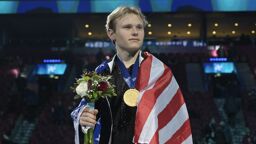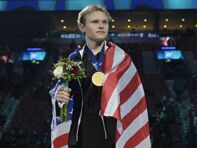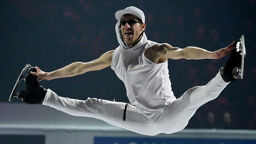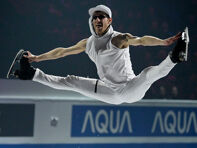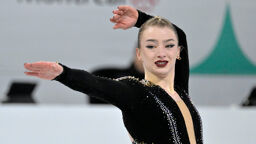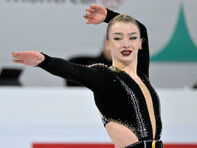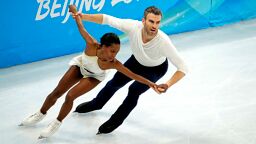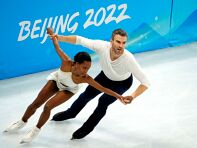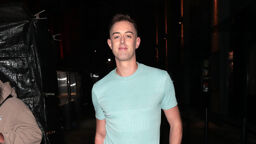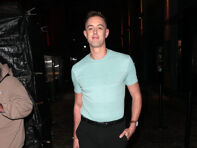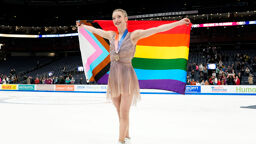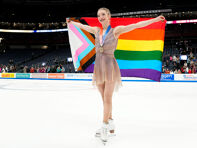In the midst of the media hype surrounding Gus Kenworthy and Adam Rippon at the Winter Olympics, there was another openly gay athlete flying the flag with pride.
Belgian ice skater Jorik Hendrickx was never given as much attention as his fellow Olympians, who became the first first two openly gay men to make a Team USA winter team. This doesn’t mean Hendrickx’s story was any less important, especially in Pride month.
Hendrickx, 26, finished 14th in the men’s singles competition in Pyeongchang. Having won Belgium’s national championships twice and finishing in the top 10 at the last three European Championships. Hendrickx’s time in South Korea was one that he is proud of. Not only was he competing at the pinnacle of his sport, he was doing so without fear.
“I felt more free in Korea because my journey of acceptance was completed.” Hendrickx said.
“I’m very comfortable with my sexual orientation. I’m thankful to the other athletes who gave me the courage to be out and proud.”
There were a record 15 openly LGBTQ athletes in Pyeongchang, but it seemed as if the only two names mentioned were Kenworthy and Rippon. This isn’t necessarily a bad thing in the eyes of Hendrickx, ranked 16th in the ISU World Standings.
“I’m grateful they created visibility,” he said. “Every individual is different. Some like to be more in the spotlights than others.”
“I think it was a choice by a few athletes to not draw so much attention to them based on their sexual orientation. Being a role model isn’t easy.
“I think Adam and Gus took it very seriously and made a clear statement. The Olympics were a great platform to to create visibility and awareness. But at the end we were at the Games to perform our best.”
With same-sex marriage being legal in 26 countries, some may wonder what the big fuss is about. After all, a person’s sexuality has no impact on their physical performance. Even in the world of ice skating, it isn’t necessarily smooth sailing for gay athletes.
“The whole world is straight. So is the sports world. It’s always a step to say I’m not.” Hendrickx said.
“For some people it’s still a big step to make. Some people are still afraid to publicly come out.
“In the case of athletes, we just want to be known for our capability and our results without putting the focus on our sexual orientation, which should be irrelevant in sport in every case. In an ideal world, people should not even have to come out.”
Times are changing and more people are expressing a positive attitude towards LGBT sports stars. Last year, Forza Football conducted one of the largest surveys into attitudes towards gay soccer players. It polled 50,000 people from 38 countries across five continents and asked if they would “feel comfortable” with a gay or bisexual player playing for a team they support. Seventy-six percent of those surveyed said that they would have no problem.
Regardless of changing attitudes, coming out in the world of sport remains tough for many. This was not the case for Hendrickx.
“My experience was very good,” he said. “I gave an interview to an LGBTQ online platform in Belgium. It wasn’t really a coming out interview.”
“The press at the Games found this interview [it wasn’t hidden] and asked me to make a statement. After I made one, they wrote one article about it. It was over and the spotlight was again on my performance.”
Hendrickx lives in one of the most gay-friendly countries in the world. Same-sex activity has been legal in Belgium since 1795. In 2003, it became the second country in the world to legalize same-sex marriage and remains one of the few countries to have previously had an openly LGBT prime minister.
“I don’t experience any homophobic behavior against me. Belgium is quite open minded and I’m feeling very comfortable being gay in my country,” Hendrickx said.
Adam Addicott is a freelance sports journalist based in England. He is currently the editor of ubitennis.net and can be reached at [email protected] or on Twitter @tennisbanter.
Jorik Hendrickx can be followed on Instagram.



